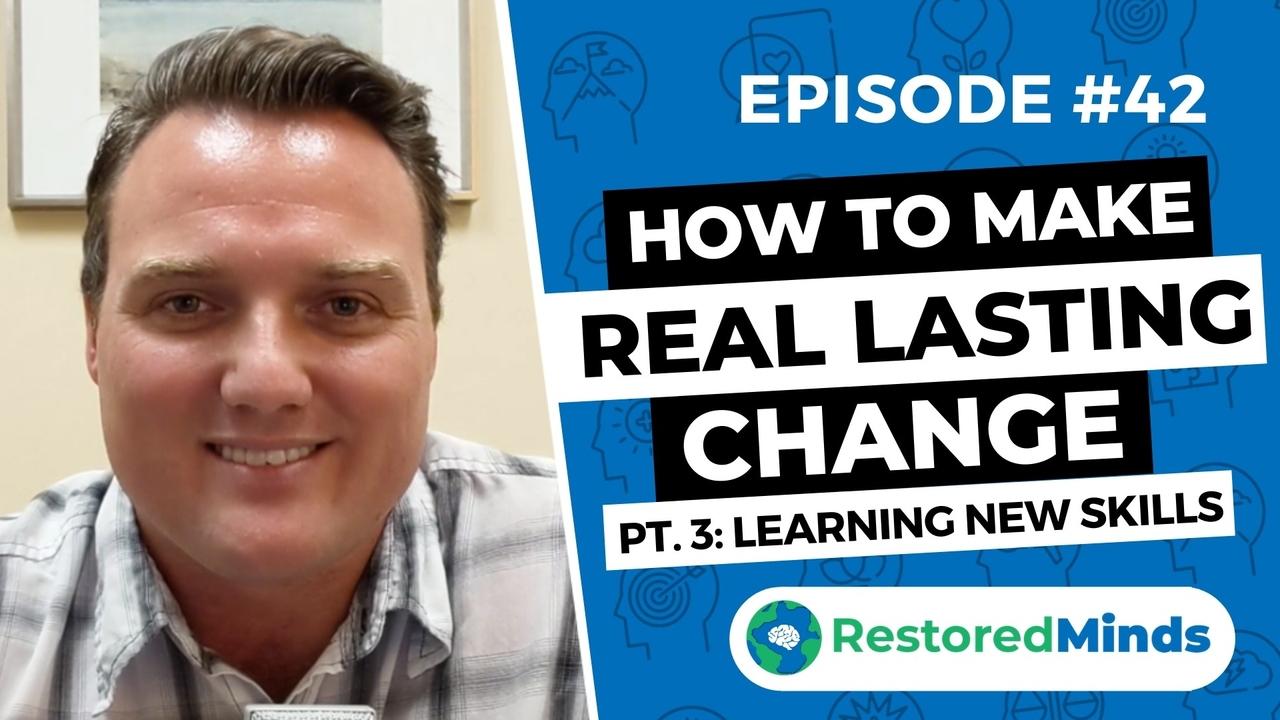How to Make Real Lasting Change - Pt. 3: Learning New Skills
Aug 05, 2020
Understanding the Ineffectiveness of Changing Environment
In the first part of our series, we tackled the misconception that altering our environment is a surefire way to make meaningful change. While it might seem logical to assume that moving to a new city or starting a new relationship will rid us of old habits, the reality is quite different. We soon realize that no matter where we go, our habitual patterns follow. More significantly, changing our environment does little to address emotional disturbances, as we can't control external factors.
The Limitations of Behavioral Change
In the second part of the series, we shifted our focus to behavioral change. Changing behaviors is inherently more effective than changing environments because behaviors are within our control. However, attempting to alter behaviors without a supportive framework—like having the necessary skills, beliefs, or identity—often results in short-term success at best.
The Importance of Learning New Skills
So, where does this leave us? Today, we're focusing on the pivotal role of acquiring new skills to support behavior change. Discussing this in the context of mental health, skills like Cognitive Behavioral Therapy (CBT) and Exposure and Response Prevention (ERP) come to mind. These skills help us understand the science behind our actions and facilitate a greater commitment to change.
Whether it's overcoming a fear of flying or managing stress and anxiety, understanding the nuances behind these behaviors is essential. For instance, the coronavirus pandemic has necessitated new skills in emotional management, and recognizing these emotional disturbances is a fundamental skill.
Skills to Notice and Manage Emotions
A valuable skill we often overlook is the ability to notice our emotions. Many of us live reactively, reacting to external triggers without questioning the internal emotional disruptions they cause. Developing the skill to notice and understand these disruptions enables us to make choices in our best interest, rather than acting impulsively.
The Role of Meditation and Mindfulness
Meditation is another invaluable skill that encourages the creation of space between our thoughts and actions. At Restored Minds, we highly advocate for this practice because it fosters long-term behavioral changes. Creating that space is crucial in making well-considered decisions rather than impulsive ones.
Utilizing Mental Noting and Cognitive Strategies
Skills like mental noting, ERP, and CBT are instrumental in driving behavior change. Techniques like these help us become more aware of our thought patterns and emotional states, thus enabling us to act in ways that are aligned with our long-term goals.
Conclusion
As we go deeper into this series, we realize that skill sets form an integral foundation for lasting change. Our next episode will delve into the layers of belief and identity, exploring how they influence our actions and behaviors from within.


